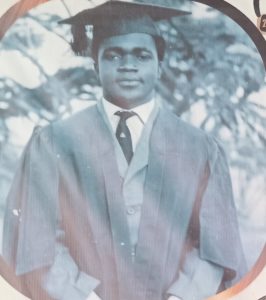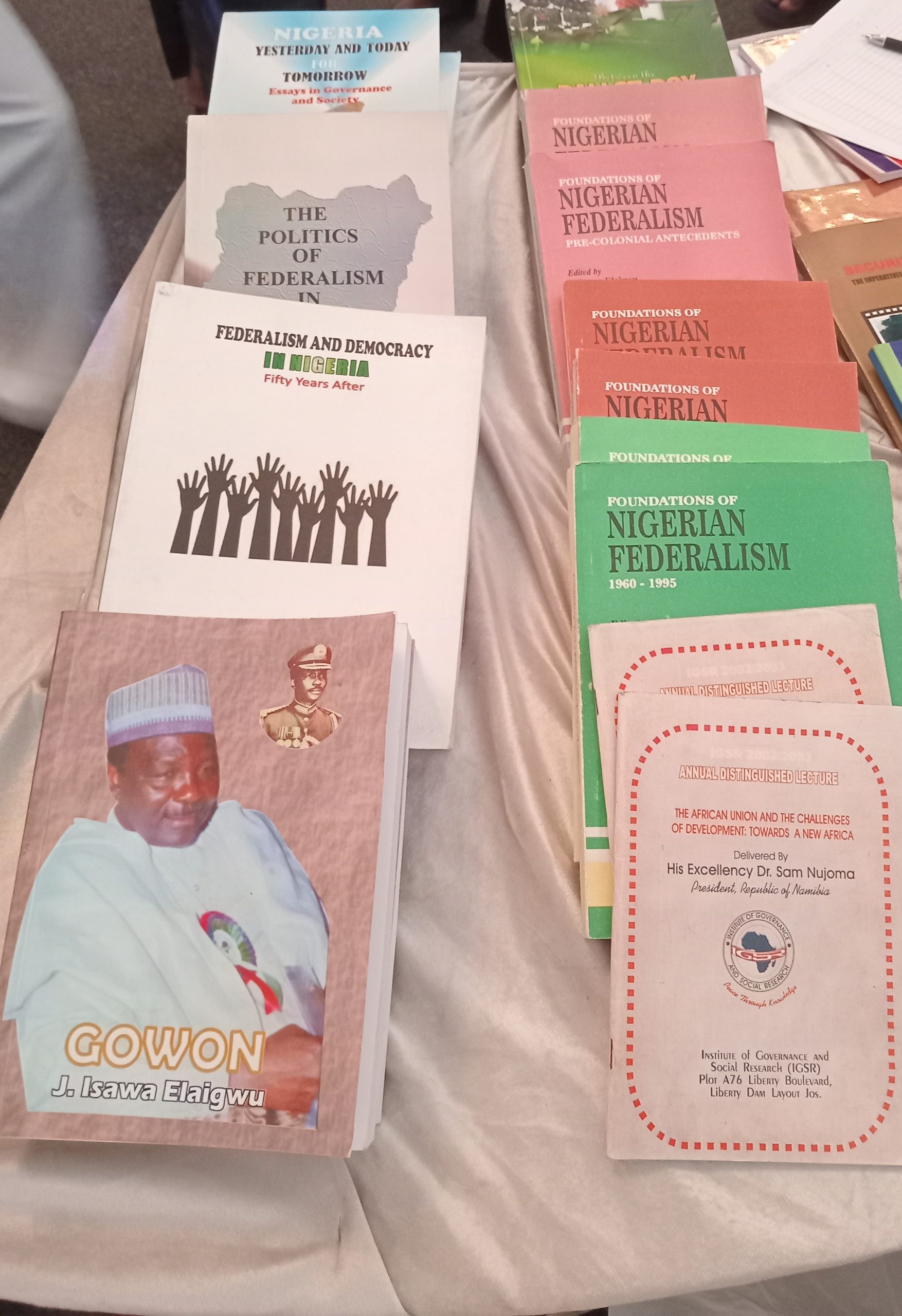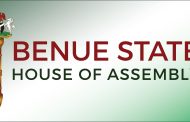Those who didn’t sight any comets proclaiming Prof Jonah Isawa Elaigwu’s death at the venue of the ‘Evening of Tributes’ to him last Friday (10/10/2025) do not have to worry about defending themselves but Prof Elaigwu did get a princely farewell corresponding to the larger than life frequency at which he operated and for which he was admired far beyond any nativism. Most important, he was cleared of the possibility of him ever being a military apologist by someone who knew him very well. But we shall come to that shortly.

Quintessential Elaigwu?
AIB Events Centre in Abuja where the ‘Evening of Tributes’ took place was still but a clean workshop up to 4 pm that day when Intervention arrived. Workers of different skills were still setting up and putting finishing touches; an impressive display of pictures of the departed was up, with the message that he too grew up from being a boy to the stature he attained. Some members of the Planning Committee notably Prof Sunday Ochoche, Prof Jideoffor Adibe, Amb Nick Ella, Amb Adama, Amb Jane Ndem, Mr. Olofu, Mr Akor Otobo, Ene Ede and others could be seen anticipating and bursting any creases. The Elaigwu persona was in the air.
The evening began to take shape with the surprising early arrival of Senator David Mark who was chairing the event. That marked the first wave of arrival spanning another former Senate President in the person of Dr Iyorchia Ayu, Senator Suleiman Adokwe, Justice Ejembi Eko and General Chris Garba whose arrival Intervention missed.
But it wasn’t till 5. 47 pm when the MC roused the audience to presence, calling Rear Admiral Solomon Agada (retd) to lead the audience in prayers. Another wave of arrivals in which Adamu Muazu, former governor of Bauchi State as well as former National Chairman of the PDP was the most notable. It was Prof Elaigwu who once told Intervention that, in the past, it was never a big deal for Christians to sit for Islamic Religious Knowledge and Muslims to sit for Christian Religious Knowledge, using Adamu Muazu as an example of a Muslim who did so.
All this while, a video of different scenes from Elaigwu’s journey in life was streaming. In one of them, Prof Elaigwu could be seen talking with General Babangida from the back, with Gen Abdulsalami Abubakar sitting not too far, all the two in a light green babanriga.
 Prof Sunday Ochoche, Chairman of the National Planning Committee of the Elaigwu Burial read a hefty profile of the departed, from being born the son of a colonial clerk to being a consultant to several international organisations, many of them in the UN family and with works on federalism across India, Nepal, Uganda and Sudan amongst others. That made him a source of intellectual standing of Nigeria, he said. He obtained his PhD in 1975, returned to Nigeria immediately to start teaching at the Ahmadu Bello University, Zaria before moving to the University of Jos. Ochoche ascribed to him qualities of being brisk, witty, bold and blunt, qualities that set him apart from a society lost in obsequiousness. But Elaigwu ended up as a peacemaker. His think tank – the Institute of Governance and Social Research – trained 14, 000 peace activists in Plateau State since 2009. God gave him six children and two grandchildren, Ochoche told his audience
Prof Sunday Ochoche, Chairman of the National Planning Committee of the Elaigwu Burial read a hefty profile of the departed, from being born the son of a colonial clerk to being a consultant to several international organisations, many of them in the UN family and with works on federalism across India, Nepal, Uganda and Sudan amongst others. That made him a source of intellectual standing of Nigeria, he said. He obtained his PhD in 1975, returned to Nigeria immediately to start teaching at the Ahmadu Bello University, Zaria before moving to the University of Jos. Ochoche ascribed to him qualities of being brisk, witty, bold and blunt, qualities that set him apart from a society lost in obsequiousness. But Elaigwu ended up as a peacemaker. His think tank – the Institute of Governance and Social Research – trained 14, 000 peace activists in Plateau State since 2009. God gave him six children and two grandchildren, Ochoche told his audience
The event had recorded another wave of arrivals, among them Bongos Ikwue, Prof Jibrin Ibrahim, Comrade John Odah, Arch Sunday Echono, Chief John Ochoga, Dr. Bulus Kwopnan of the Department of Political Science at the University of Jos where Elaigwu was.
It was time for the big masquerades to start dancing, beginning from General Yakubu Gowon, Nigeria’s military Head of State from 1966 to 1975. Gowon’s tribute was read by elder Solomon Asemota (SAN). In it, Gen Gowon told the story of how Prof Elaigwu came to write Gowon: The Biography of A Soldier-Statesman. With his fall from power, Gowon was not in the mood to grant any interviews or seek publicity. But an interview was what Elaigwu wanted. An interview with the man Ali Mazrui, Elaigwu’s friend had called the Abraham Lincoln of Nigeria would put things in sharper perspective. When he met a brick wall in trying to get Gowon grant an interview for the book, Elaigwu though Prof Ishaya Audu could make Gowon change his mind. He got it right. Gowon mellowed and there was the interview from which Elaigwu drew the inferences that, until recently, remained the only biography of a Nigerian Head of State written by a scholar. No matter what, a biography written by a fresh Stanford University PhD holder like Elaigwu is bound to go farther than any such stuff by a hagiographer, no matter how skillful a hagiographer might be. But that is a different matter for now. Gowon’s interesting point is that relationship between the two of them blossomed thereafter, with Elaigwu as a loyal, engaging friend which makes his death a personal loss to Gowon.

This must be a picture of his graduation from Zaria
In General Babangida’s tribute read by Amb Godwin Adama, the gap toothed General lavished adjectives on the departed scholar. He called Elaigwu a national intellectual asset whose reputation as such was why he was one of those he (Babangida) invited “to give intellectual horizon to policy”. Elaigwu, said Babangida, turned out to be a valuable resource person, easy going, candid and a natural fellow traveler who found no problems to be beyond his conceptual gaze.
General Abdulsalami’s tribute, read by Amb Nick Ella, reckoned with Elaigwu as someone who gave all his life to serving Nigeria and did so with distinction, be it at ABU, Zaria, the University of Jos or presidential committees and, as such a loss to Otukpo, his home base, military commanders who were his students and Nigeria.
Chairman of the occasion, Senator David Mark added few more adjectives to Elaigwu in his speech: pathfinder, towering figure, intellectual depth, clarity of thought, consummate academic and visionary thinker. Mark who is from Otukpo as Elaigwu said at the start of his speech that, in order not to overshot his quota of time, he was going to read only a portion of what he had written down to say. In all, he spent four minutes, yielding the podium to another former Senate president and former National Chairman of the People’s Democratic Party (PDP), Dr. Iyorchia Ayu.

Senator Mark, Gen Chris Garba and Senator Ayu @ the event
Ayu was, from start to finish, the star performer in building his tributes on the substantive controversies around Prof Elaigwu. His first thesis on Elaigwu is that of a professor who didn’t just lecture and that was all. No. Rather, Elaigwu was highly networked, particularly in the politics of influencing power but in a very blunt way as for anybody to call him a military apologist. He gave the example of how Elaigwu asked if he (Ayu) would want to be put on a list for commissionership which a new military governor (Ishaya Bakut) had requested Elaigwu to help put together upon Bakut’s appointment as military governor of Benue State in 1986. It was Ayu who declined the opening but only to be asked again by Elaigwu shortly after if he would want to take a directorship position in MAMSER. This he also declined because he didn’t even know what MAMSER was. At this point, Ayu had no inkling he could be leaving academia for partisan politics. His second thesis is that Elaigwu wanted nothing for himself even as influential as he was. Ayu’s argument is that Elaigwu could have got something bigger for himself under the Babangida administration if he so desired. His third thesis is that you were Elaigwu’s friend only you were hard working. You would not go far with him if you were lazy and sloppy, irrespective of your tribal or whatever identity.
Ayu’s thesis three is experientially derived. He had been dragged to the University of Jos as a Teaching Assistant, very junior to the Elaigwus and Prof Justin Tseayos. In fact, so young he was often mistaken as a student and told to leave the Reference Library. He found Elaigwu to be popular with students as well as an emergent authority whose works were taking his name ahead of him, locally and otherwise. It is for this reason Ayu would not want anyone to provincialise/ethnicise Elaigwu because “he was a pride to Nigeria and an international figure”
 General Chris Abutu Garba rivetted the audience a lot with his stories from a long relationship with Elaigwu, starting from the primary school in Otukpo to the United States where both of them ended up schooling. In one instance, Garba drove from Oklahoma to visit Elaigwu in California. Elaigwu would not allow him go to a hotel for accommodation but in staying together, they will not sleep because they end up gisting all night. That was in 1975. In another circumstance, it was Elaigwu asking him to move quickly and dissuade a fellow Idoma from an extraordinarily risky path of thunder. He tried but it was too late.
General Chris Abutu Garba rivetted the audience a lot with his stories from a long relationship with Elaigwu, starting from the primary school in Otukpo to the United States where both of them ended up schooling. In one instance, Garba drove from Oklahoma to visit Elaigwu in California. Elaigwu would not allow him go to a hotel for accommodation but in staying together, they will not sleep because they end up gisting all night. That was in 1975. In another circumstance, it was Elaigwu asking him to move quickly and dissuade a fellow Idoma from an extraordinarily risky path of thunder. He tried but it was too late.
Garba and Elaigwu were all sportsmen as well as members of the Boys’ Brigade. Garba’s recollection is that the signs were there quite early that Elaigwu was heading to scholarship because he dropped off sports which was where they both started. Garba ended on a philosophical note on Elaigwu’s passing: there is time for everything.
There was no one who spoke who didn’t bring out a different dimension of the Elaigwu phenomenon, be it Senator Adokwe, the SGF who was represented at the event, Bongos Ikwue with his moving performance of ‘Mustapha and Christopher’ and the accompanying cue: one, united Nigeria’, rendered mellifluously by the legend himself from a sitting position, Justice Ejembi Eko (retd) who last spoke with Prof before his death, Chief John Ochoga who worked closely with Elaigwu at the National Council for Inter-Governmental Relations (NCIR), the global health governance activist Dr. Enyantu Ifenne and Prof Elaigwu’s children who brought the speech making to a close with powerful father-children sentiments. One of them is, interestingly, called Echewune, Idoma word for relativism, ambiguity, uncertainty or even undecidability even as we are told that postmodernism is an anachronism.
 The three known voices unfortunately not heard were those of Prof Sam Egwu who would have given another version of Ayu’s tribute; Ene Obi who would have given a student leader’s insight, having schooled at UNIJOS where Elaigwu was unfolding and the Middle Belt Forum. Even in the best planned event, there could be mishaps.
The three known voices unfortunately not heard were those of Prof Sam Egwu who would have given another version of Ayu’s tribute; Ene Obi who would have given a student leader’s insight, having schooled at UNIJOS where Elaigwu was unfolding and the Middle Belt Forum. Even in the best planned event, there could be mishaps.
With the ‘Evening of Tributes’, the process leading to Prof Elaigwu’s return to God is off the ground. One more such in Jos on October 14th, 2025 and he would be on his way back to Otukpo from whence he came. Considering the height he attained, his passage is an occasion for celebration, not mourning. Speech makers made this point repeatedly at his ‘Evening of Tributes’




























